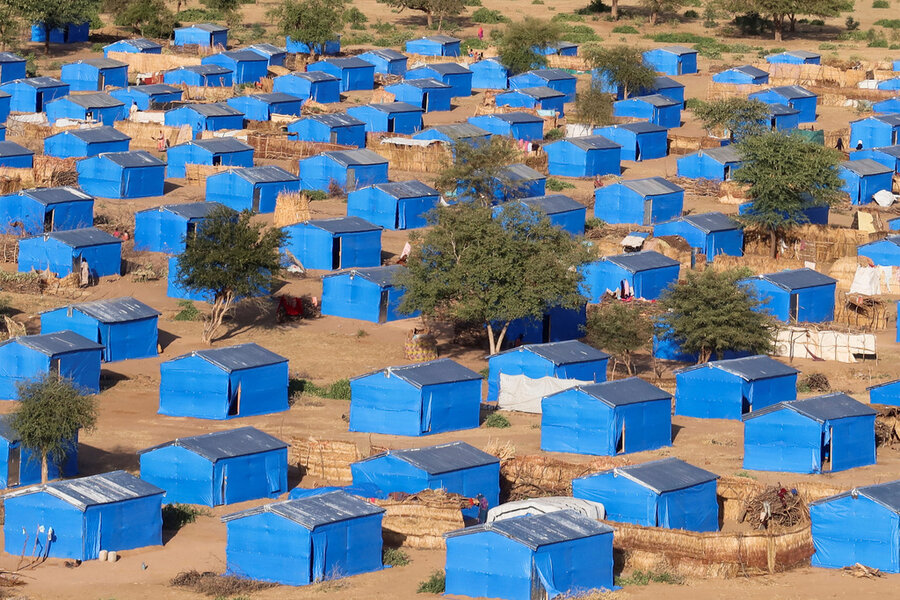A lesson in peaceful listening
Loading...
The responses by regional peacemakers to the war in Gaza during the past two months have highlighted how the Middle East is working toward a more integrated and peaceful future. A similar shift is underway in Africa, where neighboring nations have banded together to end a brutal civil war in Sudan.
Those efforts may now be on the cusp of a breakthrough. The leaders of Kenya, Ethiopia, Djibouti, and South Sudan are set to meet in coming days. Their goal is to chart a broadly inclusive process to restore peace and democracy. That alone would be significant. In seven months, the war has displaced more than 6 million people and rekindled ethnic violence in parts of the country still recovering from genocide a generation ago.
But the summit matters in another way, too. Coming just days after the war’s rival factions pressured the United Nations Security Council to close its political mission in Sudan, it reflects the utility of patient trust-building. Led by Kenyan President William Ruto, regional leaders have spent months listening and working to develop credibility with the warring factions and their international patrons.
Such diplomacy rests on what Workneh Gebeyehu, executive secretary of the Intergovernmental Authority on Development, a bloc of East African nations, calls a collective “moral obligation to the peace and stability” rooted in dignity and the protection of innocent life. It’s proving persuasive. The United States and Saudi Arabia now see regional peace-efforts work as the key to restarting their halting diplomacy in Sudan.
“When African states propose a formula for addressing an African crisis, world powers often put aside their difference and back it,” wrote regional experts Alex de Waal and Abdul Mohammed in The New York Times this week.
The war broke out in April when two rival generals who conspired to overthrow a transitional civilian-led government turned their forces on each other. The conflict sparked parallel peace initiatives to keep a humanitarian crisis from creating wider instability in an already fragile region. Unifying those mediation efforts requires building trust among a broad array of foreign actors with competing economic and strategic interests in Sudan.
One outcome of the summit next week might be a division of labor. Amgad Fareid Eltayeb, a fellow at the European Council on Foreign Relations, has argued for spreading the duty to meet military, political, and humanitarian needs of Sudan among various international mentors with a shared goal of enabling the Sudanese people to determine their own future.
That approach reflects what may be an emerging good at a time of fragmenting blocs of global power. As authors Jared Cohen and Ian Bremmer wrote in Foreign Policy Wednesday, the critical adhesive for a world in balance is trust: “At the global level, credibility makes alliances and deterrence work, increasing cooperation and reducing the risk.”
In Sudan, as in Gaza, new constellations of cooperation are forming. A new era of listening among nations may be underway.







